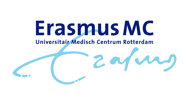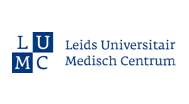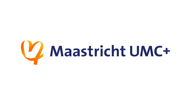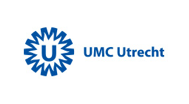Clinical resarch
The umcs provide high-quality care, and that is partly possible thanks to new insights and innovations deriving from their prestigious biomedical and healthcare research. Customised clinical research is of great importance to optimise patient care and continue innovating in the fields of prevention, treatment and aftercare.
The umcs have a strong position in clinical research in Europe. It is important that the research is conducted in a way that guarantees the safety of the study participant as well as the quality of the research. The NFU contributes in various ways to this goal.
Clinical Research Platform (PMO)
The NFU Human Related Research Platform plays an ongoing role in aligning how legislation is implemented in the policy of the university medical centres. The focus of the Platform: guaranteeing the preconditions for all human-related clinical research, whether or not falling under the Medical Research Involving Human Subjects Act (WMO).
The Platform speaks with one voice to all relevant players in the Netherlands, such as the Dutch Clinical Research Foundation (DCRF), collaborating top clinical hospitals (STZ), industry, policymakers and health funds. PMO uses the knowledge and expertise of the members of the NFU Working Group on Quality assurance of research involving human subjects workgroup.
Quality assurance of research involving human subjects workgroup
Scientific research must be conducted in a responsible manner, according to the applicable legislation. The umcs jointly contribute to the development of these laws and rules. In addition, agreements are regularly evaluated and adjusted. The permanent NFU workgroup, Quality assurance of research involving human subjects, plays an important role in this. It prepared the Quality assurance of research involving human subjects guideline, to assure the safety of study participants and the quality of clinical research. It contains the minimum requirements that research involving human subjects in the umcs must meet. And the guideline is primarily intended for the quality assurance of medical-scientific research initiated by researchers that falls under the WMO.
In addition, the workgroup is a place for exchanging knowledge and practical resources. The workgroup coordinates processes and procedures. At the request of the NFU Clinical Research Platform, the workgroup can develop topics or participate in national working groups. The workgroup advises and reports to the Platform.
Code of Conduct for Health Research 2022
It is not always clear to researchers what is and is not allowed in scientific research with sensitive data and body material from patients and citizens. COREON's revised Code of Conduct for Health Research translates the regulations for health research involving personal data and body material into a set of concrete standards. So that researchers, institutions, citizens and patients know which rules Dutch health research should comply with in practice.
The revised Code of Conduct reflects a broad consensus on how researchers can handle personal data and body material responsibly. COREON, Health-RI, FMS, NFU, NVVP and STZ endorse the Code of Conduct and will start working on the implementation together from July 22. A broadly composed working group will make an inventory of which policy and which tools require adjustments and what needs to be newly developed. Researchers who want to know more about the rules for health research can already use the Code of Conduct for Health Research as a reference book. More information about this can be obtained from the ELSI Service Desk.
You can read more about the implementation of the code of conduct for health research 2022 on the Coreon website.
Clinical Trial Agreement
For the benefit of clinical research initiated by industry, a Clinical Trial Agreement (CTA) was created. This model agreement enables clinical research to start faster. In turn, this means patients can count on benefiting sooner from new medicines and treatment methods. The CTA contains all the rights and obligations of the parties involved in clinical research in hospitals that is being financed by pharmaceutical companies. It is managed by the Dutch Clinical Research Foundation (DCRF) and was set up in collaboration with the NFU and other umbrella organisations.
Clinical Trials Regulation effective January 31, 2022
On January 31, 2022, the EU Regulation for Research into Medicines will apply Clinical Trials Regulation, 536/2014, CTR. The aim of this regulation is to harmonize the design, testing and implementation of research into medicinal products in the European Union. This leads to simplification and acceleration, so that more patients benefit more quickly from the medical innovations.
The BROK® has been adapted to the CTR from January 31, 2022.
More information
Researchers, policy and quality officers of the UMCs can obtain the most recent information from:








